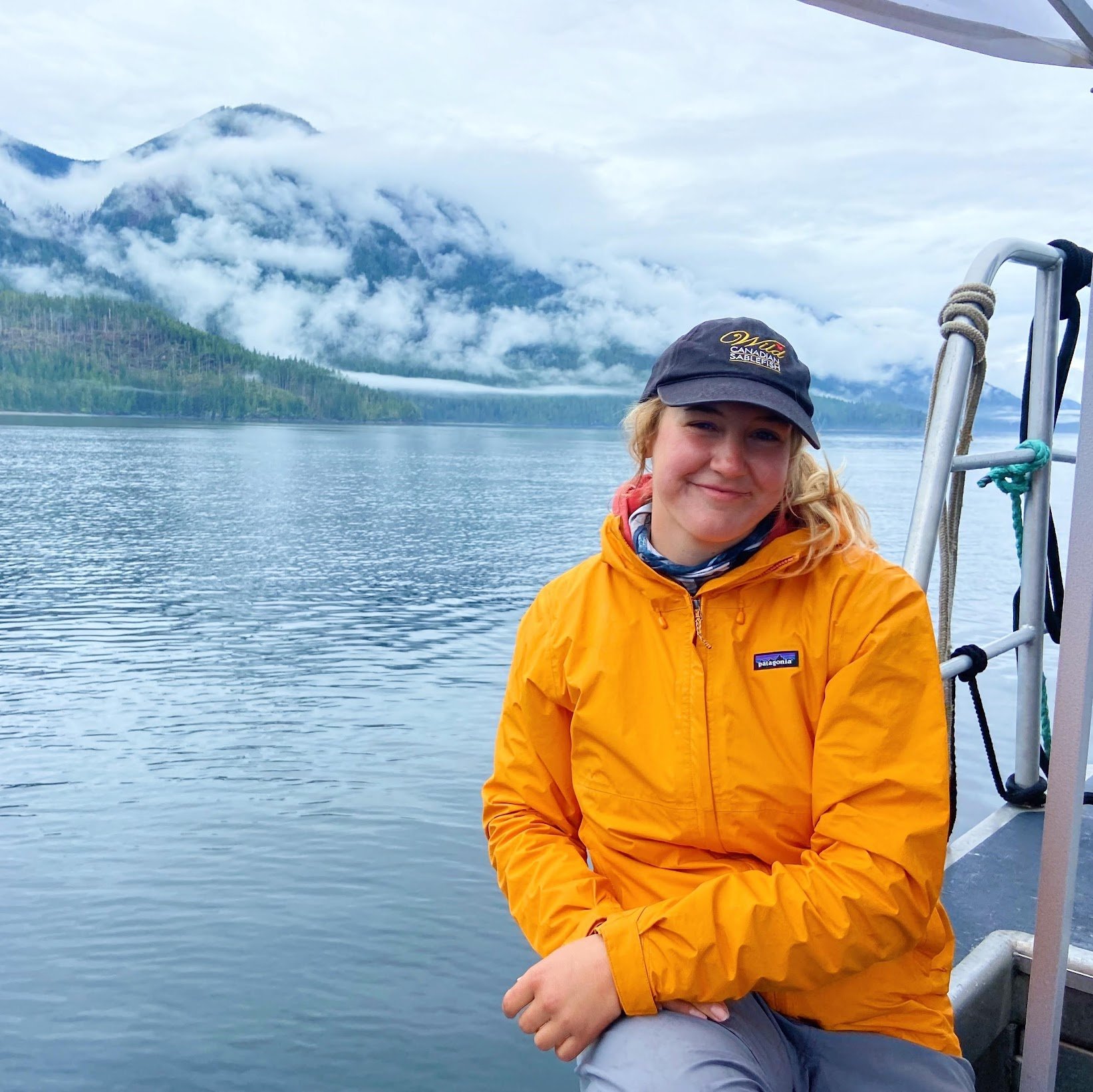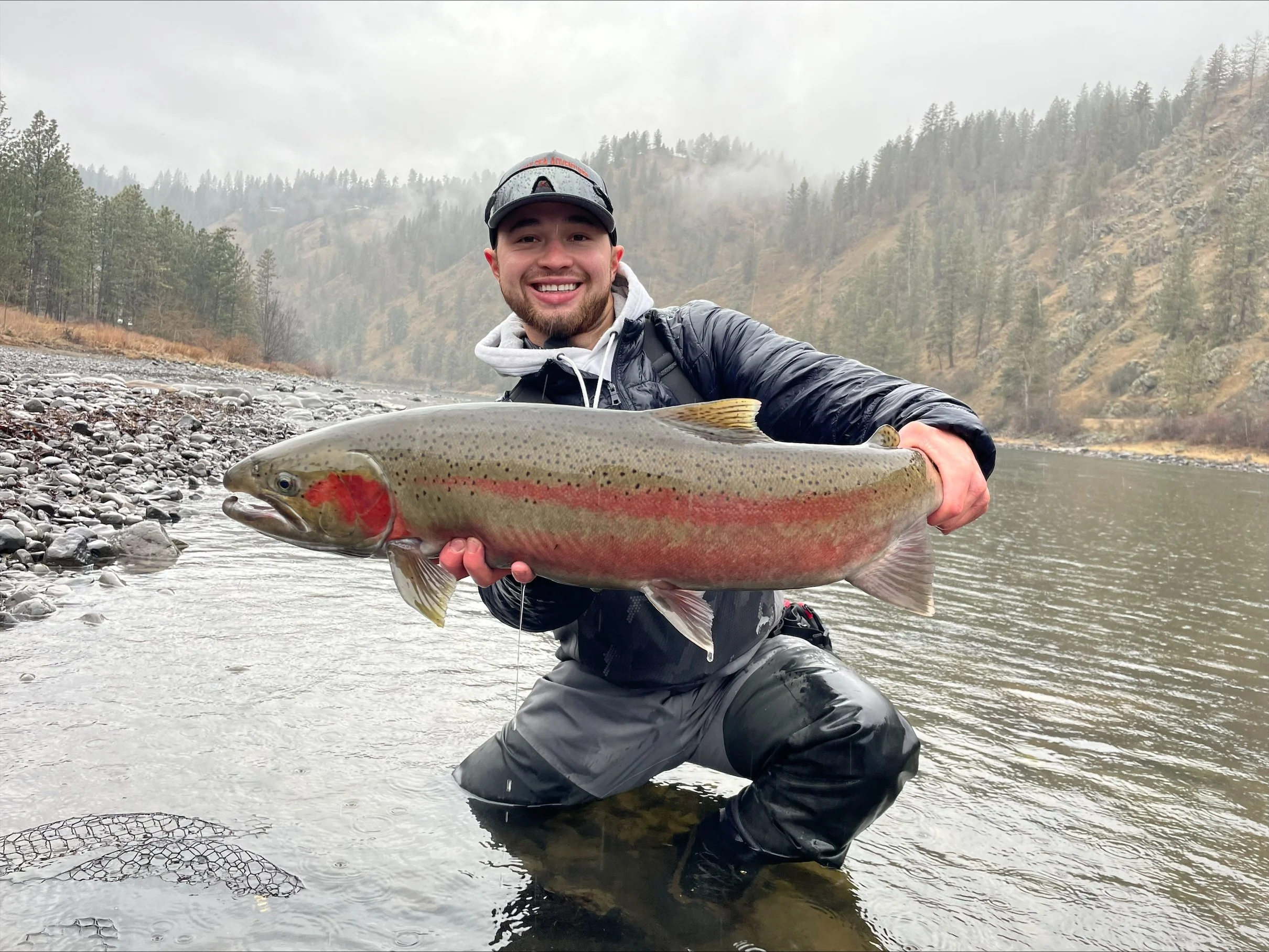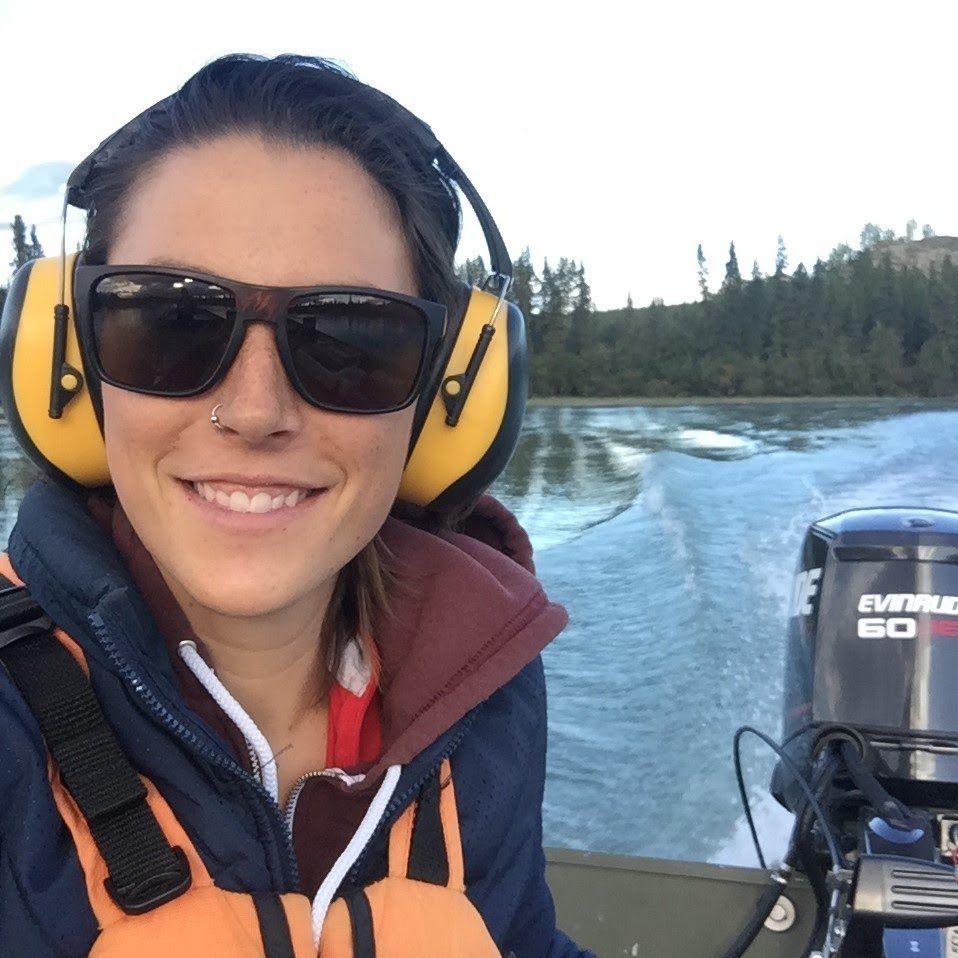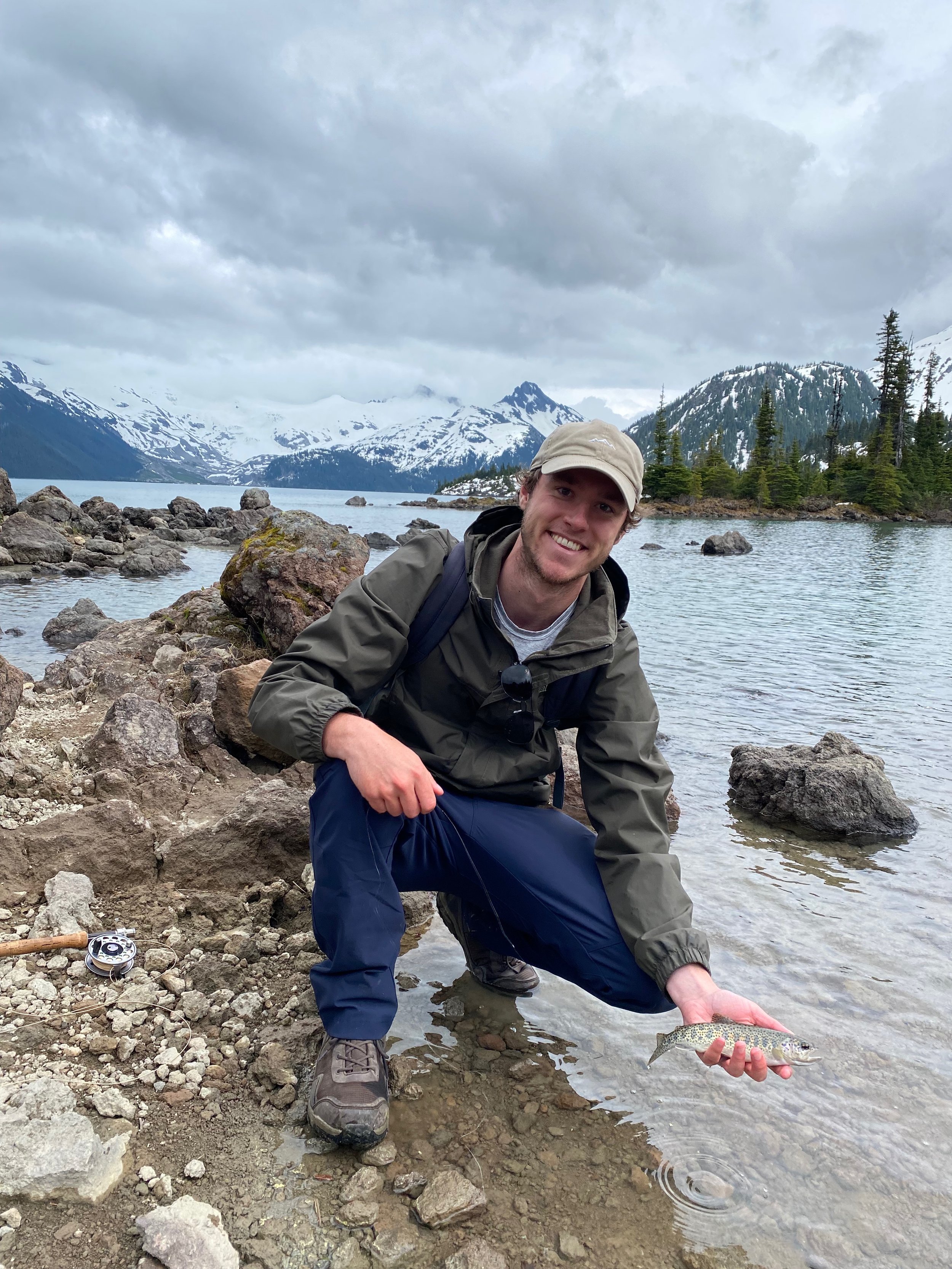Principle Investigators
-
Principle Investigator
I am an assistant professor focusing on fisheries science, particularly recreational fisheries. I merge concepts from commercial fisheries with human dimensions and management science to help inform management decisions. Prior to joining the School of Resource and Environmental Management at Simon Fraser University, I worked for the British Columbia Ministry of Environment as a Senior Aquatic Scientist, where I worked with fisheries managers to approach an array of issues affecting fisheries and aquatic systems. These included managing fisheries as social-ecological systems, addressing invasive species, deciding between setting regulations and improving habitat to prevent overfishing, and addressing impacts to proposed and existing hydroelectric dams.
My research includes decision analysis and structured decision making to address management issues, development of novel techniques for monitoring fishing effort, and developing and applying social-ecological systems models to better understand interrelationships between management, fish and fishers.
-
University Research Associate
Dr. Johnston explores interactions between water use through hydroelectric facilities and operations, and ecological and social values important to government, First Nations, and stakeholders. Her work follows many years of adaptive management experiments across nearly every BC Hydro facility in the province to determine how operations affect social and ecological outcomes. This is a long-term commitment and will yield important findings about the system as a whole, as well as help us understand how our use of natural resources impacts every aspect of the watershed.
Current Students
-
PhD candidate
My work uses population, spatial, and genetics models to design and evaluate management and recovery plans for fish species-at-risk. This includes evaluating implications for different sampling strategies on admixture estimates, application of cumulative effects processes on advice for westslope cutthroat trout, and evaluating changes in stock structure among steelhead.
Funder: BC Ministry of Water, Land and Resource Stewardship
Co-supervisors: Brett van Poorten and Michael Whitlock (UBC)
-
MRM student
I am currently studying a recreational Bull Trout fishery at Meziadin Lake in Northern B.C where I use existing data on exploitation rates to help local managers make decisions among different future management regulations.
Funders: BC Ministry of Water, Land and Resource Stewardship; Freshwater Fisheries Society of BC
Supervisor: Brett van Poorten
-
MRM student
Co-supervised by David Patterson (DFO), my research explore how biotic and abiotic factors affect over-summer and over-winter lipid accumulation of sockeye salmon.
Funders: Fisheries and Oceans Canada
Supervisor: Brett van Poorten
-
MRM student
My research involves developing and testing a new stock assessment model for the BC spot prawn recreational fishery. This model will inform how different data collection frequency impacts management decision accuracy by DFO.
Funders: Fisheries and Oceans Canada
Supervisor: Brett van Poorten
-
MRM student
I am developing a stock assessment model for Arctic Dolly Varden subsistence fisheries and using this as the basis for a closed-loop simulation to test reference points derived from Maya’s thesis.
Funders: Fisheries and Oceans Canada; Government of Northwest Territories
Supervisor: Brett van Poorten
-
MRM student
I am applying the model developed by Sam Ofoe to evaluate conservation outcomes of different recreational management regulations for BC spot prawn and how that can be used to inform management decisions by DFO.
Funders: Fisheries and Oceans Canada
Supervisor: Brett van Poorten
-
MRM student
I work with DFO to investigate how environmental information is used in making management decisions for Fraser River sockeye.
Funders: Fisheries and Oceans Canada
Supervisor: Sean Cox
-
MRM student
My work explores how watershed characteristics and dam configuration work to constrict the range of flow conditions experienced below hydroelectric dams. This is important as hydroelectric companies work to balance operations aimed at providing consistent electricity for the public against ecological and social impacts of dam operations on downstream habitats and communities. Understanding this restricted operating space helps to streamline discussions and negotiations with governments (including Indigenous nations) and stakeholders.
Funders: BC Hydro; Mitacs
Co-supervisors: Fiona Johnston and Brett van Poorten
-
MRM student
I study fishers at multiple lakes in the Thompson-Nicola region of BC, in partnership with Freshwater Fisheries Society of BC. My research aims to determine how new and experienced anglers value different attributes of fisheries and facilities. This will help evaluate how improved access and docks affects these different groups to identify who benefits from increased access to fishing sites.
Funders: Freshwater Fisheries Society of BC; Mitacs
Supervisor: Brett van Poorten
-
My work involves understanding the scope of change that has occurred in the Mackenzie Delta Dolly Varden fisheries over the past several decades. I will work with harvesters and elders to understand the scale the fishery in previous generations and use this information to recreate the fishery using quantitative models. This will help us understand how productivity has declined and how we can manage in the face of a similar uncertain future.
Funders: Fisheries and Oceans Canada
Supervisor: Brett van Poorten
-
Many researchers have found evidence of effort sorting - the redistribution of skilled anglers away from lakes with few fish and movement of skilled anglers towards those lakes. I will take a different perspective by understanding what motivates differently skilled/experienced anglers to fish at a lake and simulate how these stated preference will lead them to chose among a landscape of fisheries in different states of collapse.
Funders: Natural Science and Engineering Research Council
Supervisor: Brett van Poorten
-
We expect that when catch rates declines it is because there are fewer fish, but this isn’t necessarily the case. In many inland recreational fisheries, hundreds of lakes are managed by a single biologist; it is impossible to monitor them all, so they partially rely on reports from anglers about poor catch rates to signal a decline. But if catch rates stay high, they may not be aware of declines. I am investigating several mechanisms of this disconnect between catch rates and abundance to propose when it is sufficient to rely on catch rates and when it is necessary to invest more in monitoring to avoid ecological and economic collapse of important fisheries.
Funders: Natural Science and Engineering Research Council
Supervisor: Brett van Poorten
Alumni
-
Former Post Doc
Chris evaluated length data and bioenergetics models for lower Fraser River White Sturgeon
Currently employed as assistant professor and associate director: Quantitative Fisheries Center, Michigan State University
-
Former MRM student
Maya worked with DFO, Gwich’in and Inuvialuit communities to understand changes that have occurred to Mackenzie River Dolly Varden stocks and their habitat.
-
Former MRM student
Jeremy’s research understood social values of lake users to make well-informed decisions for invasive species risk management. We are also working with Jasper National Park to provide material helping them make inclusive and effective management decisions.
Currently employed as research assistant: Fisheries Management Lab
-
Former MRM student
Phil evaluated the Strait of Georgia Creel Survey to determine areas where DFO should improve or change monitoring to reflect changes to management priorities and fishery dynamics over time.
Currently employed as aquatic science biologist: Fisheries and Oceans Canada
-
Former MRM student
Kelcy’s research aimed to understand how and why the structure of recreational management organizations differ from our ideal of management and how they might adapt.
Currently employed as biologist: Ecofish Research
-
Former MRM student
Mikayla’s research evaluated the ability of egg mats placed in the Nechako River to identify spawning locations of endangered Nechako white sturgeon.
Currently employed as biologist: Fisheries and Oceans Canada
-
Former MRM student
Hannah investigated the value of information associated improved precision of different key parameters and processes in recreational fisheries social-ecological systems models.
Currently employed as aquatic biologist: Fisheries and Oceans Canada
-
Former PhD student (UBC)
Rachel’s research aimed at informing management of upper Fraser River bull trout. Her work included a meta-analysis of bull trout recruitment, assessment of space use of these highly-mobile fish, and implications of different management actions on objectives of interest to managers.
Currently employed as fisheries scientist: Ecofish Research
-
Former PhD student (2021)
Patricia’s research involved applying ecosystem models to freshwater management challenges. These included fertilization of Arrow Lake, invasion of nonnative mussels in Shuswap Lake, and introduction of salmon in Arrow Lake.
Currently employed as regulation biologist: BC Ministry of Water, Land and Resource Stewardship






















